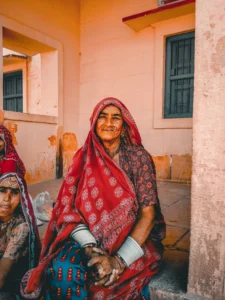 Unlocking Housing Finance for Women: Perspectives from IFC and Sewa Grih Rin Ltd. (Sitara)
Unlocking Housing Finance for Women: Perspectives from IFC and Sewa Grih Rin Ltd. (Sitara)
By Olivia Nielsen, Miyamoto International
 Access to safe and affordable housing is a fundamental human right. But unfortunately, it is not enjoyed equally by all members of society. Women in particular face significant barriers to accessing housing finance. This can have a range of negative impacts on their lives.
Access to safe and affordable housing is a fundamental human right. But unfortunately, it is not enjoyed equally by all members of society. Women in particular face significant barriers to accessing housing finance. This can have a range of negative impacts on their lives.
In honor of International Women's Day this year, the Way Forward Housing Coalition (WHFC) recently held a global knowledge-sharing event on the urgent need to expand access to housing finance for women. The panel featured two experts in the field: Monserrat Ganuza from the International Finance Corporation (IFC) and Shruti Gonsalves from SEWA Grih Rin Ltd. (Sitara) in India.
Ganuza presented findings from Her Home - Housing Finance for Women, an IFC study of six emerging market countries that examined a combination of factors including supply-side constraints, demand-side barriers, and regulatory issues related to housing. One key reason why women struggle to access housing finance is due to the gender disparities that exist in land ownership. According to the World Bank, women only own 20% of the world's land, despite making up 50% of the population. This inequality is perpetuated by a range of factors, including discriminatory laws and cultural practices that favor men over women, when it comes to land ownership. While some countries have gender-neutral policies, 40% limit women’s property rights. And because women are not specifically targeted by subsidies or incentives, their ability to access housing finance is limited.
In India, where Gonsalves works, women tend to work in the informal economy, and have informal property titles. This informality makes access to longer term credit, like mortgage finance, very difficult, as women lack proof of income and title security. One way to solve these critical issues is by working with women, state and local governments, and third-party service providers to improve the quality of women’s titles and to underwrite their incomes. This enable Sitara – a regulated housing finance company with a gender-focus – to provide longer-term housing finance. And, by increasing term of finance, housing loans become more affordable.
Expanding access to housing finance for women is not just a matter of basic human rights. It also has the potential to drive broader economic and social development. By providing women with the financial tools they need to build and own their own homes, can help them break the cycle of poverty and create more stable and resilient communities.
The opportunity to expand access to housing finance for women is significant, estimated at US$600 billion worldwide. Moreover, there are significant positive secondary impacts associated with expanding access to housing finance for women. For example, allowing women to use their homes as collateral can propel entrepreneurship by providing them with access to capital to start and grow their businesses. This can have a ripple effect, as successful businesses can help to drive broader economic growth and create employment opportunities for others.
The WFHC webinar highlighted the urgent need to expand access to housing finance for women. While the challenges are significant, the opportunity to make a positive impact is also substantial. By working together to address the gender disparities that exist in access to housing finance, we can create a more just and equitable society for all.